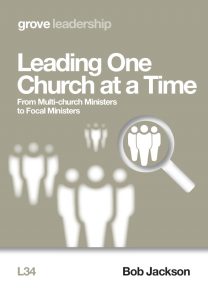Q&A: How do we hold both conviction and humility?
Sarah, responding to my previous post, asks:
Hi Will, could you write another blog post on what conviction and humility look like? Speaking truth to power as you say.
Conviction is essential for obedience; it doesn’t forsake humility. And if we are saying and doing things that our society agrees with, they will recognise humility. But if we are humbly speaking God’s truth that is at odds with the world around us, it won’t be liked, it will be hated, and the world won’t see any humility at all because we are pointing to an authority higher than all others. We endure, we bless, we answer kindly, we are humble. But we will have to be prepared to not be seen as humble whilst we are bowing the knee to the Lord Jesus?
[This is a Q&A question that has been submitted through this blog or asked of me elsewhere and posted with permission. You can submit a question (anonymously if you like) here: http://briggs.id.au/jour/qanda/]
 Thanks Sarah, and to others who have asked me if I could follow up on my previous post that deals with a perceived incoherence between two aspects of the gospel:
Thanks Sarah, and to others who have asked me if I could follow up on my previous post that deals with a perceived incoherence between two aspects of the gospel:
- The truth-claim that Jesus is Lord. (The message of the gospel).
- The character of humility. (The mode of the gospel).
As a wise friend commented, “Great stuff, Will. You outlined the dilemma well. I’d like to hear a fleshing out of the solution a bit more.” This is my attempt.
I’m not going to ground this attempt in anything more profound than my own experience and an aspiration towards common sense.
It begins with an agreement with the premise of the question: the Christian call is towards both conviction and humility. These two are not at odds. In fact, in the Christian worldview, conviction and humility cohere, that is, they go together and can’t be separated.
And I also agree with the premise that, in the end, the fact of this can’t be determined by other people; it is centred on Jesus. This is point of contention, perhaps. Almost by definition, humility involves an awareness of others, a willingness to listen, to be open to being changed and moved by someone and not hardened towards them. Paul is right: “Do nothing out of selfish ambition or vain conceit. Rather, in humility value others above yourselves not looking to your own interests but each of you to the interests of the others.” (Philippians 2:3,4)
The key to my thoughts is this: our other-awareness derives from our Jesus-centredness. That is, our humble approach towards others, in the end, relies upon us being found in Jesus, for Jesus, to Jesus. That is, our conviction about the gospel is the source from which our humility derives. There are a number of senses to this:
Firstly, there is a sense in which Jesus is the greatest example of humility. We saw that in the previous post when we looked at Philippians 2:6-8. To be apprentices of Jesus is to have the same “mind of Christ” and approach others in his mode. This is essentially “WWJD”, which isn’t always easy to practice: sometimes being silent, sometimes speaking up, sometimes standing against, sometimes submitting. Whatever the exact behaviour, the heart is humble.
Secondly, there is a deeper sense in which Jesus enables us to be humble. Humility is aware of others, but there can be a flip-side to that. I am also other-focused when I am driven by fear, pride, panic, hate, lust, and so on. If my sense of identity and worth is bound up in others, then it is impossible to be truly humble. If my identity is other-centred then any actions I do, even if they are nice and acquiescent will be at least tinged by self-preservation or self-fulfillment. Rather, if Jesus has captured my life (Galatians 2:20) then I am his and his alone; therefore I am free of obligation towards anyone else. I owe my eternal life to no-one else. Therefore I am free to be humble. John 2:24 describes this of Jesus, who in his humility, “would not entrust himself to them, for he knew all people.” He was free of them, he was free to love them.
Thirdly, there is a similar sense in which the Spirit of Jesus compels us to be humble. There is a conceptual and practical aspect to this. Conceptually, the gospel is a great leveller: “For it is by grace you have been saved, through faith – and this is not from yourselves, it is the gift of God – not by works, so that no one can boast” (Ephesians 2:8-9). Practically, we trust that the Spirit of Jesus is at work in us. “Christ love compels us” (2 Corinthians 5:14a), says Paul, and he is right. However that compulsion is manifest – speaking, listening, acting, resisting, or simply solidly being – Jesus doesn’t just show us the way and give us the freedom to walk it, he leads, guides, propels us forward. The more we look to him, the more we are moved by his humble, life-giving Spirit.
I think the the premise of Sarah’s question is right. Our humility towards others rests upon our dependence on Jesus. Because of this, we cannot, in the end, measure the “success” of our humility by whether it is recognised or not. It doesn’t mean we ignore others, or dismiss other’s opinions and beliefs – after all, Jesus, didn’t do that. It does mean we don’t fear others, slip into their traps, or concur with their brokenness; we are embraced by Jesus first, and we love others out of freedom.
And it won’t always “work.” It didn’t work for Jesus. “If the world hates you,” Jesus said (John 15:18), “keep in mind that it hated me first.”
Gill and I have certainly known what means to be rejected. It does lead to some soul-searching. Many times, we have fallen short of the humility of the gospel, and have not been careful enough in manner or mode. Sometimes, we have compromised on the truth. At other times, I have had to conclude that I could do no more: My physical size has had me perceived as overbearing, and I can do little about that. I inhabit the role of vicar, and sometimes people respond to previous negative experiences of other vicars, and I can do little about that. All I can do is focus on Jesus and seek to be more like him.
But when it works, it works! I received a voice message today from a friend of mine. Here is someone who is fully committed to the gospel, and feels very free to share it. But there is no sense (beyond ordinary human brokenness) that that conviction is not manifest in a Jesus-centred humility. Take a listen to Uncle Nige:
And finally, I was struck today by an article that summed it up really well, from the point of view of Adam Neder, a Christian teacher. He conceives of humility as an awareness of our weakness, and therefore a dependence on the Spirit.
Many of us who teach Christian theology are keenly aware of the poverty of our language in comparison to the reality of God. We try our best to speak truthfully and faithfully, but our words often seem thin and unreal, they taste like ashes on our tongues, and we wonder if our teaching will add up to anything more than wasted time. In extreme cases, this trajectory of thought and feeling can lead to a deadening acedia that takes root within us and leaves us hopeless or in despair.
But an awareness of our dependence on the Spirit moves us in the opposite direction. It eases the pressure by displacing the teacher from the center of the educational process. It relativizes our weaknesses. It does not eliminate them, and it certainly does not excuse them, but it assures us that God rises above them. And this awareness becomes an essential source of freedom and joy for those who believe and depend on it, whereas for those who do not, teaching can become a burden too heavy to bear—at least for teachers who want their students to know God personally.
Humility is an awareness of the “poverty of our language” and a “displacing the teacher from the center.” When we come full of ourselves, with controlling systems, asserted techniques, and market-proven strategies, we are missing the mode of the gospel. When we come dependent on the Spirit, that is the power and freedom to humbly gift ourselves to the world. Whether the world receives us or not is not for us to know or control.
That then is the only “solution” I can offer: Jesus first, the rest of it will follow.
Image credit: Pjposullivan


